
Lee Morgan on Trumpet at the Jazznote Part II
To Go Back to Part I or Skip to: 1964-65 | The Challenging Recordings | The Final Phase: Modality and Fusion | His Recording Legacy


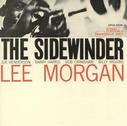 After Blakey, a hiatus, a strong showing with Mobley on No Room For Squares, and then the album that would secure Morgan's place in the realm of popular if not critical success. Just short of Christmas on December 21, 1963 Morgan along with Joe Henderson (ts), Barry Harris (p), Bob Cranshaw (b) and Billy Higgins (ds) stepped into the Blue Note studios to record one of the biggest hits for that label, The Sidewinder (BN 4157). A collection of Morgan originals, the title track set of the jigaboo dance craze. The CD reissue comes with an alternate take of "Totem Pole".
After Blakey, a hiatus, a strong showing with Mobley on No Room For Squares, and then the album that would secure Morgan's place in the realm of popular if not critical success. Just short of Christmas on December 21, 1963 Morgan along with Joe Henderson (ts), Barry Harris (p), Bob Cranshaw (b) and Billy Higgins (ds) stepped into the Blue Note studios to record one of the biggest hits for that label, The Sidewinder (BN 4157). A collection of Morgan originals, the title track set of the jigaboo dance craze. The CD reissue comes with an alternate take of "Totem Pole".
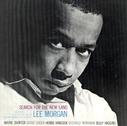
 Still riding high from The Sidewinder, Morgan followed up with the explorative album Search For The New Land (BN 4169), a challenging set of Morgan originals, including one of his best, "Mr. Kennyatta". On this session from February 15, 1964 the trumpeter is joined by Wayne Shorter (ts), Herbie Hancock (p), Grant Green (g), Reggie Workman (b) and Billy Higgins (ds)--Blue Note's new crew of regulars, who would appear in various formations regularly over the next half decade.
Still riding high from The Sidewinder, Morgan followed up with the explorative album Search For The New Land (BN 4169), a challenging set of Morgan originals, including one of his best, "Mr. Kennyatta". On this session from February 15, 1964 the trumpeter is joined by Wayne Shorter (ts), Herbie Hancock (p), Grant Green (g), Reggie Workman (b) and Billy Higgins (ds)--Blue Note's new crew of regulars, who would appear in various formations regularly over the next half decade.
Yet Another Stint with the Jazz Messengers (1964-65)
By early 1964 trumpeter Freddie Hubbard had parted ways with Art Blakey's Jazz Messengers, thus freeing the coveted spot for Morgan to make another collection of great recordings with the master leader, and maintain his tight connection with longtime recording mates Curtis Fuller (tb) and Wayne Shorter (ts), as well as newer Messengers Cedar Walton (p) and Reggie Workman (b).
April 15, 1964--recorded with Art Blakey And The Jazz Messengers.
April 24, 1964--recordings with Art Blakey And The Jazz Messengers that would later contribute to the album Indestructable (BN 4193).
April 29, 1964--on Wayne Shorter Quintet's Night Dreamer (BN 4173) along with Wayne Shorter (ts), McCoy Tyner (p), Reggie Workman (b) and Elvin Jones (ds).
May 15, 1964--contributes "Calling Miss Khadija" on another recording session for Indestructable with Art Blakey And The Jazz Messengers.
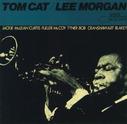
 Despite being one of hard bop's more consistent leaders a number of Lee Morgan's sessions were not released until years - even decades - later. One of these is Tom Cat, a session from August 11, 1964 that has a stellar lineup of Curtis Fuller (tb), Jackie McLean (as), McCoy Tyner (p), Bob Cranshaw (b) and Art Blakey (ds). Consisting of a number of Morgan originals including the very fine "Exotique", as well as Tyner's "Twilight Mist" and the borrowed "Rigor Mortis", this session was shelved until 1980.
Despite being one of hard bop's more consistent leaders a number of Lee Morgan's sessions were not released until years - even decades - later. One of these is Tom Cat, a session from August 11, 1964 that has a stellar lineup of Curtis Fuller (tb), Jackie McLean (as), McCoy Tyner (p), Bob Cranshaw (b) and Art Blakey (ds). Consisting of a number of Morgan originals including the very fine "Exotique", as well as Tyner's "Twilight Mist" and the borrowed "Rigor Mortis", this session was shelved until 1980.
September 4, 1964--like Tom Cat above, this session for Stanley Turrentine, Mr. Natural, would not be released until much later. Present along with Morgan are Stanley Turrentine (ts - leader), McCoy Tyner (p), Bob Cranshaw (b), Elvin Jones (ds) and Ray Barretto on conga. Morgan contributes "Tocos".
November 15-16, 25, 1964--on a series of sessions with Art Blakey And The Jazz Messengers - Curtis Fuller (tb), John Gilmore (ts), John Hicks (p), Victor Sproles (b) and Art Blakey (ds - leader) - for the Limelight album, 'S Make It. Morgan contributes "Lament for Stacey".
December 1 and 3, 1964--records two tracks on Blues Bag with the Buddy DeFranco Sextet along with fellow Messengers Curtis Fuller (tb), Victor Sproles (b), Art Blakey (ds) and Cannonball Adderley's pianist, Victor Feldman (p/vib)--and, of course, Buddy DeFranco (cl/b-cl - leader).
March 7, 1965--in London with Art Blakey And The Jazz Messengers. Contributes (again?) "Lament For Stacy" to the obscure album, Are You Real?.
April 9 and 10, 1965--records with Freddie Hubbard Septet at Club La Marchal in New York City. The two albums for Blue Note, The Night Of The Cookers Vol.1 and 2 (BN 4207 and 4208) include Freddie Hubbard (tp - leader), James Spaulding (as/fl), Harold Mabern (p), Larry Ridley (b), Pete LaRoca (ds) and Big Black (conga).

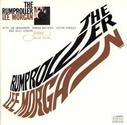 Though not the commercially successful follow-up to The Sidewinder expected, Morgan's The Rumproller (BN 4199) is a return to the more boppity side of hard bop - perhaps a consequence of Blue Note's rejection of Tom Cat from the previous year. At the April 21, 1965 session are Joe Henderson (ts) and drummer Billy Higgins reprising their roles from The Sidewinder session, with the addition of Ronnie Matthews (p) and fellow Messenger Victor Sproles on bass. Strangely, Morgan only contributes one title, "Eclipso", while the title track is penned by emerging avant garde pianist Andrew Hill. The CD reissue includes the previously unreleased "Venus De Mildew", from an April 9, 1965 session with the same lineup.
Though not the commercially successful follow-up to The Sidewinder expected, Morgan's The Rumproller (BN 4199) is a return to the more boppity side of hard bop - perhaps a consequence of Blue Note's rejection of Tom Cat from the previous year. At the April 21, 1965 session are Joe Henderson (ts) and drummer Billy Higgins reprising their roles from The Sidewinder session, with the addition of Ronnie Matthews (p) and fellow Messenger Victor Sproles on bass. Strangely, Morgan only contributes one title, "Eclipso", while the title track is penned by emerging avant garde pianist Andrew Hill. The CD reissue includes the previously unreleased "Venus De Mildew", from an April 9, 1965 session with the same lineup.
May 12 and 13, 1965--records what will become the album Soul Finger on Limelight with Art Blakey And The Jazz Messengers. Interestingly, Morgan is accompanied by fellow trumpeter Freddie Hubbard on these sessions.
June 18, 1965--on Dippin' (BN 4209) with the Hank Mobley Quintet along with Hank Mobley (ts - leader), Harold Mabern (p), Larry Ridley (b) and Billy Higgins (ds).
The Challenging Years of Lee Morgan
Lee Morgan virtually ran the gamut of bop development, from the orchestra of bop pioneer Dizzy Gillespie to numerous versions of hard-bop founder Art Blakey's Jazz Messengers. In the early 1960's Morgan became increasingly interested in the more challenging side of avant garde jazz, starting with trombonist Gracham Moncur III's Evolution and into his own leader sessions beginning with Search For The New Land. Unfortunately, Blue Note's struggle to remain solvent resulted in a number of these wonderful sessions by Morgan to go unreleased until years after his death, particularly those sessions in the company of altoist Jackie McLean, another bop pioneer of the avant garde fringe.
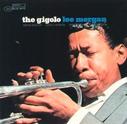
 The Gigolo (BN 4212) finds Morgan staying strong. Recorded June 25 and July 1, 1965 the session includes Wayne Shorter (ts), Harold Mabern (p), Bob Cranshaw (b) and Billy Higgins (ds) on a set of Morgan originals, the highlight being the lengthy title cut (an alternate take of which supplements the CD reissue).
The Gigolo (BN 4212) finds Morgan staying strong. Recorded June 25 and July 1, 1965 the session includes Wayne Shorter (ts), Harold Mabern (p), Bob Cranshaw (b) and Billy Higgins (ds) on a set of Morgan originals, the highlight being the lengthy title cut (an alternate take of which supplements the CD reissue).
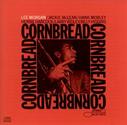
 An all-star lineup is gathered for Morgan's next effort, the challenging Cornbread (BN 4222) which has Jackie McLean (as), Hank Mobley (ts), Herbie Hancock (p), Larry Ridley (b) and Billy Higgins (ds) performing exquisitely on four Morgan originals and the standard, "Ill Wind". Especially beautiful is the ballad, "Ceora". The album was recorded September 18, 1965.
An all-star lineup is gathered for Morgan's next effort, the challenging Cornbread (BN 4222) which has Jackie McLean (as), Hank Mobley (ts), Herbie Hancock (p), Larry Ridley (b) and Billy Higgins (ds) performing exquisitely on four Morgan originals and the standard, "Ill Wind". Especially beautiful is the ballad, "Ceora". The album was recorded September 18, 1965.
September 24, 1965--returning the favor a week after Cornbread, Morgan performs on Jackie McLean's Jacknife, a challenging set that went unreleased for over a decade. Present are Charles Tolliver (tp), Jackie McLean (as - leader), Larry Willis (p), Larry Ridley (b) and Jack DeJohnette (ds).
Like McLean's Jacknife above, Morgan's next recording, Infinity from November 16, 1965 would go unreleased until much later (1980) and then go quickly out of print again. Present on this strong set of Morgan originals are Jackie McLean (as), Larry Willis (p), Reggie Workman (b) and Billy Higgins (ds).
December 3, 1965--once again Morgan records with Jackie McLean and once again the session falls short of Blue Note's increasingly commercial standards. McLean's Consequence features Morgan in the company of Jackie McLean (as - leader), Harold Mabern (p), Herbie Lewis (b) and Billy Higgins (ds). Morgan contributes "Bluesanove" and "Slumber".
December 18, 1965--Morgan joins a familiar crew for Hank Mobley's Caddy For Daddy (BN 4230) - Curtis Fuller (tb), Hank Mobley (ts - leader), McCoy Tyner (p), Bob Cranshaw (b) and Billy Higgins (ds).
January 27, 1966--takes part in the Joe Henderson Orchestra album Mode For Joe (BN 4227) - Curtis Fuller (tb), Joe Henderson (ts - leader), Bobby Hutcherson (vib/mar), Cedar Walton (p), Ron Carter (b) and Joe Chambers (ds). Contributes "Free Wheelin'".
March 18, 1966--on another session only to be released years later, this time with Hank Mobley on his group's A Slice Of the Top. Present are James Spaulding (as), Hank Mobley (ts - leader), Kiane Zawadi (euph), Howard Johnson (tu), McCoy Tyner (p), Bob Cranshaw (b), Billy Higgins (ds) and arranger Duke Pearson.
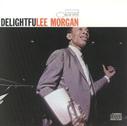
 One of Morgan's more interesting albums is Delightfulee (BN 4243) which is comprised of two sessions (April 8 and May 27, 1966), one of which is a large ensemble arranged by Oliver Nelson and including Ernie Royal (tp), Tom McIntosh (tb), Jim Buffington (fhr), Phil Woods (as/fl), Wayne Shorter (ts), Danny Banks (bs/fl/b-cl), McCoy Tyner (p), Bob Cranshaw (b) and Philly Joe Jones (ds); the latter a quintet comprised of Joe Henderson (ts), McCoy Tyner (p), Bob Cranshaw (b) and Philly Joe Jones (ds). Both groups do their respective versions of the Morgan originals "Zambia" and "The Delightful Deggie" as well as a their respective programs, including an orchestrated rendition of The Beatles hit "Yesterday" and a sparkling quintet romp through "Ca-Lee-So". The CD reissue includes four orchestra tracks not on the original release.
One of Morgan's more interesting albums is Delightfulee (BN 4243) which is comprised of two sessions (April 8 and May 27, 1966), one of which is a large ensemble arranged by Oliver Nelson and including Ernie Royal (tp), Tom McIntosh (tb), Jim Buffington (fhr), Phil Woods (as/fl), Wayne Shorter (ts), Danny Banks (bs/fl/b-cl), McCoy Tyner (p), Bob Cranshaw (b) and Philly Joe Jones (ds); the latter a quintet comprised of Joe Henderson (ts), McCoy Tyner (p), Bob Cranshaw (b) and Philly Joe Jones (ds). Both groups do their respective versions of the Morgan originals "Zambia" and "The Delightful Deggie" as well as a their respective programs, including an orchestrated rendition of The Beatles hit "Yesterday" and a sparkling quintet romp through "Ca-Lee-So". The CD reissue includes four orchestra tracks not on the original release.
June 17, 1966--on a number of tracks that would eventually be released as the Hank Mobley Quintet's Straight no Filter (BN 4435). Present are Hank Mobley (ts - leader), McCoy Tyner (p), Bob Cranshaw (b) and Billy Higgins (ds).
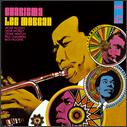 Another all-star session, this time including Jackie McLean AND finding release, is Charisma (BN 4312) from September 29, 1966 and including in addition to Morgan and McLean, Hank Mobley (ts), Cedar Walton (p), Paul Chambers (b) and Billy Higgins (ds). Undeservedly obscure, the session features three of Blue Note's greatest horns in fantastic form, especially on the funky track, "Hey Chico". Two months later on November 29, 1966 the same lineup minus McLean reunited to record Morgan's The Rajah (BN 4426). A strong hard bop set, the album went unreleased until 1984, and still has not been issued on CD.
Another all-star session, this time including Jackie McLean AND finding release, is Charisma (BN 4312) from September 29, 1966 and including in addition to Morgan and McLean, Hank Mobley (ts), Cedar Walton (p), Paul Chambers (b) and Billy Higgins (ds). Undeservedly obscure, the session features three of Blue Note's greatest horns in fantastic form, especially on the funky track, "Hey Chico". Two months later on November 29, 1966 the same lineup minus McLean reunited to record Morgan's The Rajah (BN 4426). A strong hard bop set, the album went unreleased until 1984, and still has not been issued on CD.
February 24, 1967--on yet another Blue Note venture doomed to the vaults until the '80's--the Hank Mobley Septet's Third Season with James Spaulding (as/fl), Hank Mobley (ts), Cedar Walton (p), Sonny Greenwich (g), Walter Booker (b) and Billy Higgins (ds). Morgan contributes "Steppin' Stone".
Morgan's next leader session is unique in that it features the R&B tenor work of David "Fathead" Newman. Also present are Cedar Walton (p), Ron Carter (b) and Billy Higgins (ds) on a pair of sessions (April 14 and 28, 1967) that would only be released in 1979 as Sonic Boon, and quickly go out of print (not yet reissued on CD). A slightly better fate was that of The Procrastinator by the Lee Morgan All-Star Sextet. Though initially released well after its recording on July 14, 1967, the album is available on CD and features a strong lineup - Wayne Shorter (ts), Bobby Hutcherson (vib), Herbie Hancock (p), Ron Carter (b) and Billy Higgins (ds) - as well as a fine collection of tracks including the Morgan title cut and "Stop Start".
September 22, 1967--on Easterly Winds (BN 4270) by the Jack Wilson Sextet with Garnett Brown (tb), Jackie McLean (as), Jack Wilson (p - leader), Bob Cranshaw (b) and Billy Higgins (ds).
Morgan Goes Modal--The Final Phase
In his final years, Lee Morgan started to mellow his hard bop roots and avant garde twist and diverge into a more modal approach in his compositions, as well as some early inklings of fusion. Though he would not live long enough to fulfill his potential in these explorations he has left us with a sizable collection of recordings applying this new approach. A transition album of sorts is The Sixth Sense (BN 4335) from November 10, 1967. Morgan is in the capable company of Jackie McLean (as), Frank Mitchell (ts), Cedar Walton (p), Victor Sproles (b) and Billy Higgins (ds). Worth checking out are Morgan's title track and "Anti Climax" as well as Walton's explorations on "Afreaka".
December 1, 1967--joins up with Bob Northern (flh), Julian Priester (tb), Howard Johnson (tu), James Spaulding (as/fl), Benny Maupin (ts), McCoy Tyner (p - leader), Herbie Lewis (b) and Joe Chambers (ds) on the McCoy Tyner Group's Tender Moment (BN 4275).
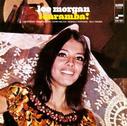 On Taru from February 15, 1968, Morgan is joined by tenor Bennie Maupin, who would feature prominantly in Morgan's sessions from now on. Also present are John Hicks (p), George Benson (g), Reggie Workman (b) and Billy Higgins (ds). This album and the following, Caramba (BN 4289) would find Morgan delving deeper into the modal aspects of jazz as well as some early explorations into fusion. The latter album, recently released on CD features Bennie Maupin (ts), Cedar Walton (p), Reggie Workman (b), Billy Higgins (ds), and supplements the original LP of Morgan compositions with a fine version of Cal Massey's "A Baby's Smile".
On Taru from February 15, 1968, Morgan is joined by tenor Bennie Maupin, who would feature prominantly in Morgan's sessions from now on. Also present are John Hicks (p), George Benson (g), Reggie Workman (b) and Billy Higgins (ds). This album and the following, Caramba (BN 4289) would find Morgan delving deeper into the modal aspects of jazz as well as some early explorations into fusion. The latter album, recently released on CD features Bennie Maupin (ts), Cedar Walton (p), Reggie Workman (b), Billy Higgins (ds), and supplements the original LP of Morgan compositions with a fine version of Cal Massey's "A Baby's Smile".
July 23, 1968--delves further into R&B on Lonnie Smith's Think! (BN 4290). Present are David Newman (ts/fl), Melvin Sparks (g), Lonnie Smith (org - leader), Marion Booker Jr. (ds), Henry "Pucho" Brown (timb), Willie Bivins and Norberto Apellaniz (conga).
August 5, 1968--on Andrew Hill's Grass Roots (BN 4303) along with Booker Ervin (ts), Andrew Hill (p - leader), Ron Carter (b) and Freddie Waits (ds).
January 3, 1969--again with Lonnie Smith - Turning Point (BN 4313) with Julian Priester (tb), Bennie Maupin (ts), Lonnie Smith (org - leader), Melvin Sparks (g) and Leo Morris (ds).
February 7, 1969--with Larry Young Quartet, including Herbert Mogan (ts), Larry Young (org - leader) and Eddie Gladden (ds) on Mother Ship (Blue Note).
March 14, 1969--with Elvin Jones Group on The Prime Element with Joe Farrelll (ss/ts/fl/alto-fl), George Coleman (ts), Wilbur Little (b), Elvin Jones (ds - leader), Miovelito Valles (perc) and Candido Camero (conga).
March 21, 1969--on Reuben Wilson Quintet's Love Bug (BN 4317) along with George Coleman (ts), Grant Green (g), Reuben Wilson (org - leader) and Leo Morris (ds).
The interesting lineup of Lee Morgan, Burt Collins, Joe Shepley (tp/flh), Toots Thielemans (g/hca), Al Gafa, Wally Richardson (g), Duke Pearson (p), Ron Carter (b), Mickey Roker (ds) and Airto Moreira (perc) only recorded two tracks for a Blue Note "45" ("Midnight Cowboy" b/w "Popi") on May 22, 1969. Later (September 12 and October 10, 1969), a pair of sessions featuring the Lee Morgan Sextet with Julian Priester (tb), George Coleman (ts), Harold Mabern (p), Walter Booker (b) and Mickey Roker (ds) recorded an album's worth of music that would be part of the double LP version of The Procrastinator along with the above session of that name from 1967.
October 31, 1969--with the Reuben Wilson Group on The Lost Grooves along with George Coleman (ts), Reuben Wilson (org - leader), Grant Green (g), Idris Muhammad (ds) and Joe Sircus (conga).
January 26, 1970--with Harold Mabern Sextet's Greasy Kid Stuff along with Hubert Laws (fl/ts), Harold Mabern (p - leader), Buster Williams (b/el-b), Idris Muhammad (Leo Morris) (ds), Boogaloo Joe Jones (g).
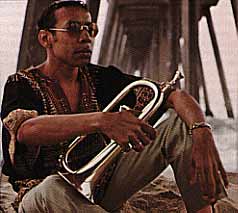
 On July 10-12, 1970, the Lee Morgan Quintet with Bennie Maupin (ts/fl/b-cl), Harold Mabern (p), Jymie Merritt (b) and Mickey Roker (ds) performed at the Lighthouse at Hermosa Beach made famous in the 1950's by Howard Rumsey and his All-Star combos. The resultant 3-CD set captures Lee Morgan at his last high point in his career. Performing mostly new compositions by Maupin and Merritt as well as his own, it is an informative and creative glimpse into the modal and fusion direction that he was persuing in his last phase. With most of the tracks between ten and twenty minutes, Live at the Lighthouse is over three hours altogether.
On July 10-12, 1970, the Lee Morgan Quintet with Bennie Maupin (ts/fl/b-cl), Harold Mabern (p), Jymie Merritt (b) and Mickey Roker (ds) performed at the Lighthouse at Hermosa Beach made famous in the 1950's by Howard Rumsey and his All-Star combos. The resultant 3-CD set captures Lee Morgan at his last high point in his career. Performing mostly new compositions by Maupin and Merritt as well as his own, it is an informative and creative glimpse into the modal and fusion direction that he was persuing in his last phase. With most of the tracks between ten and twenty minutes, Live at the Lighthouse is over three hours altogether.
Lee Morgan's final sessions as leader would go unreleased until well after his death. Recorded September 17 and 18, Blue Note's Lee Morgan has been reissued on a CD just under 70 minutes and features Grachan Moncur III (tb), Billy Harper (ts/alto-fl), his young discovery Bobbi Humphrey (fl), Harold Mabern (p/el-p), Jymie Merritt (el-b), Reggie Workman (b/perc) and Freddie Waits (ds/recorder). This album takes Morgan as far as he would ever go into modality and fusion and is sadly misdirected and inconsistent. Nevertheless, there are some bright moments.
September 30 and October 1, 1971--with his young protege's Bobbi Humphrey Orchestra along with Bobbi Humphrey (fl - leader), Billy Harper (ts), Gene Bertoncini (g), George Devens (vib/marimba/perc), Hank Jones (p/el-p), George Duvivier (b), Gordon Edwards (el-b), Idris Muhammad, Jimmy Johnson (ds) and Ray Armando (conga) on the album Flute In.
February 16 and 17, 1972--sessions with the Charles Earland Orchestra that would become the albums Intensity and Charles III along with Virgil Jones, Victor Paz, Jon Faddis (tp), Dick Griffin, Jack Jeffers (tb), Clifford Adams (tb), Hubert Laws (fl), Billy Harper (ts/fl), Charles Earland (org), John Fourie, Greg Millar (g), Billy Cobham (ds) and Sinny Morgan (conga).
On February 19, 1972, just two days after the above recording session with the Charles Earland Orchestra, Lee Morgan was shot to death by his girlfriend at Slug's Club on the east side of Manhattan. He was 34 years old.
The Legacy
Despite his relatively short career, Lee Morgan was an extremely prolific recorder. Sadly, unlike such artists as Clifford Brown, Morgan has not been comprehensively "boxed". In fact many of his later albums were released only well after his death and then let out of print. Today, they are scarcely available despite their certain artistic merit.
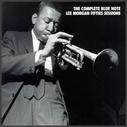
 Fortunately, his first six leader recordings have been boxed by Mosaic as the Complete Blue Note Lee Morgan Fifties Sessions. They include Indeed, Volume Two, Volume Three, City Lights, and the essential albums The Cooker and Candy. Also four previously unreleased tracks from that era are included. All on a 4-CD set totalling over four hours of classic Morgan.
Fortunately, his first six leader recordings have been boxed by Mosaic as the Complete Blue Note Lee Morgan Fifties Sessions. They include Indeed, Volume Two, Volume Three, City Lights, and the essential albums The Cooker and Candy. Also four previously unreleased tracks from that era are included. All on a 4-CD set totalling over four hours of classic Morgan.
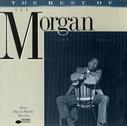
 Though the Jazznote usually shies away from single CD "best of" compilations, we do heartily recommend Blue Note's Best of Lee Morgan. At 72 minutes this CD gives an excellent sampling of Morgan's brilliance between 1957 and 1965, with such classics as "The Sidewinder", "The Rumproller", "Cornbread", and early renditions of "Night in Tunisia" and "I Remember Clifford".
Though the Jazznote usually shies away from single CD "best of" compilations, we do heartily recommend Blue Note's Best of Lee Morgan. At 72 minutes this CD gives an excellent sampling of Morgan's brilliance between 1957 and 1965, with such classics as "The Sidewinder", "The Rumproller", "Cornbread", and early renditions of "Night in Tunisia" and "I Remember Clifford".

HOME | TOP | ARTISTS
<a href="inside.html">Home</a> for those on the no frames program.


 After Blakey, a hiatus, a strong showing with Mobley on No Room For Squares, and then the album that would secure Morgan's place in the realm of popular if not critical success. Just short of Christmas on December 21, 1963 Morgan along with Joe Henderson (ts), Barry Harris (p), Bob Cranshaw (b) and Billy Higgins (ds) stepped into the Blue Note studios to record one of the biggest hits for that label, The Sidewinder (BN 4157). A collection of Morgan originals, the title track set of the jigaboo dance craze. The CD reissue comes with an alternate take of "Totem Pole".
After Blakey, a hiatus, a strong showing with Mobley on No Room For Squares, and then the album that would secure Morgan's place in the realm of popular if not critical success. Just short of Christmas on December 21, 1963 Morgan along with Joe Henderson (ts), Barry Harris (p), Bob Cranshaw (b) and Billy Higgins (ds) stepped into the Blue Note studios to record one of the biggest hits for that label, The Sidewinder (BN 4157). A collection of Morgan originals, the title track set of the jigaboo dance craze. The CD reissue comes with an alternate take of "Totem Pole".



 Though not the commercially successful follow-up to The Sidewinder expected, Morgan's The Rumproller (BN 4199) is a return to the more boppity side of hard bop - perhaps a consequence of Blue Note's rejection of Tom Cat from the previous year. At the April 21, 1965 session are Joe Henderson (ts) and drummer Billy Higgins reprising their roles from The Sidewinder session, with the addition of Ronnie Matthews (p) and fellow Messenger Victor Sproles on bass. Strangely, Morgan only contributes one title, "Eclipso", while the title track is penned by emerging avant garde pianist Andrew Hill. The CD reissue includes the previously unreleased "Venus De Mildew", from an April 9, 1965 session with the same lineup.
Though not the commercially successful follow-up to The Sidewinder expected, Morgan's The Rumproller (BN 4199) is a return to the more boppity side of hard bop - perhaps a consequence of Blue Note's rejection of Tom Cat from the previous year. At the April 21, 1965 session are Joe Henderson (ts) and drummer Billy Higgins reprising their roles from The Sidewinder session, with the addition of Ronnie Matthews (p) and fellow Messenger Victor Sproles on bass. Strangely, Morgan only contributes one title, "Eclipso", while the title track is penned by emerging avant garde pianist Andrew Hill. The CD reissue includes the previously unreleased "Venus De Mildew", from an April 9, 1965 session with the same lineup.



 Another all-star session, this time including Jackie McLean AND finding release, is Charisma (BN 4312) from September 29, 1966 and including in addition to Morgan and McLean, Hank Mobley (ts), Cedar Walton (p), Paul Chambers (b) and Billy Higgins (ds). Undeservedly obscure, the session features three of Blue Note's greatest horns in fantastic form, especially on the funky track, "Hey Chico". Two months later on November 29, 1966 the same lineup minus McLean reunited to record Morgan's The Rajah (BN 4426). A strong hard bop set, the album went unreleased until 1984, and still has not been issued on CD.
Another all-star session, this time including Jackie McLean AND finding release, is Charisma (BN 4312) from September 29, 1966 and including in addition to Morgan and McLean, Hank Mobley (ts), Cedar Walton (p), Paul Chambers (b) and Billy Higgins (ds). Undeservedly obscure, the session features three of Blue Note's greatest horns in fantastic form, especially on the funky track, "Hey Chico". Two months later on November 29, 1966 the same lineup minus McLean reunited to record Morgan's The Rajah (BN 4426). A strong hard bop set, the album went unreleased until 1984, and still has not been issued on CD.
 On Taru from February 15, 1968, Morgan is joined by tenor Bennie Maupin, who would feature prominantly in Morgan's sessions from now on. Also present are John Hicks (p), George Benson (g), Reggie Workman (b) and Billy Higgins (ds). This album and the following, Caramba (BN 4289) would find Morgan delving deeper into the modal aspects of jazz as well as some early explorations into fusion. The latter album, recently released on CD features Bennie Maupin (ts), Cedar Walton (p), Reggie Workman (b), Billy Higgins (ds), and supplements the original LP of Morgan compositions with a fine version of Cal Massey's "A Baby's Smile".
On Taru from February 15, 1968, Morgan is joined by tenor Bennie Maupin, who would feature prominantly in Morgan's sessions from now on. Also present are John Hicks (p), George Benson (g), Reggie Workman (b) and Billy Higgins (ds). This album and the following, Caramba (BN 4289) would find Morgan delving deeper into the modal aspects of jazz as well as some early explorations into fusion. The latter album, recently released on CD features Bennie Maupin (ts), Cedar Walton (p), Reggie Workman (b), Billy Higgins (ds), and supplements the original LP of Morgan compositions with a fine version of Cal Massey's "A Baby's Smile".


